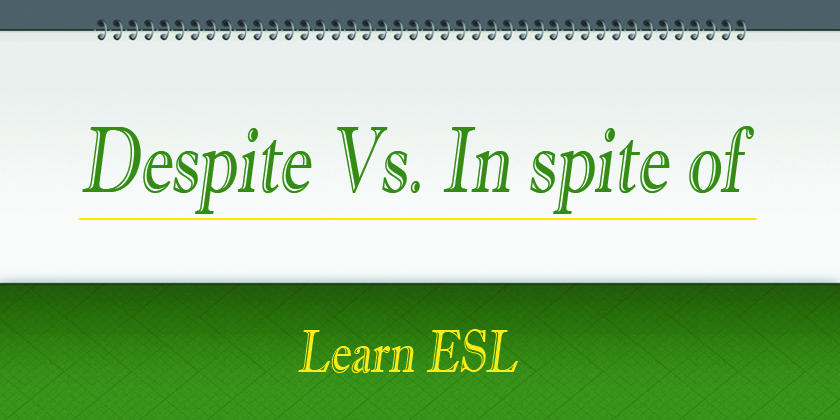
The English terms in spite of and despite are very similar in meaning and usage; in spite of this, English speakers sometimes find them confusing. Despite might be a tiny bit more formal. Read the article below to know the difference between despite and in spite of.
Difference Between Despite and in spite of
Despite
Despite means “even though,” “notwithstanding,” or “regardless of.” It’s the opposite of “because of/due to,” and can be used with a noun or gerund.
- She had difficulty communicating in French despite all her years of study.
- We lost the game, despite the fact that we practiced all week.
- Despite not having an umbrella, I walked home in the rain.
- She was fail in the test, despite working very hard.
- He didn’t buy a new phone despite having a lot of money.
In spite of
In spite of means exactly the same thing and is used exactly the same way as “despite” but might be a bit informal rather than despite.
- She had difficulty communicating in French in spite of all her years of study.
- We lost the game, in spite of the fact that we practiced all week.
- In spite of not having an umbrella, I walked home in the rain.
- She was fail in the test, in spite of working very hard.
- He didn’t buy a new phone in spite of having a lot of money.
The Bottom Line
The English terms despite and in spite of are synonyms. Despite might be a tiny bit more formal, but the two terms are interchangeable. Just be careful not to say something like “despite of” or “in despite” – it’s always either the three words in spite of, or just the single word despite.
Was the article helpful? Please feel free to write your feedback about the article in the comment box below.
